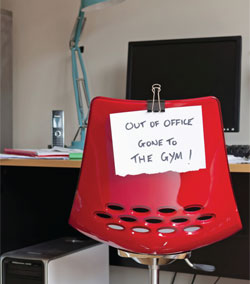June 2014
COMMUNITIES: EDUCATION
‘Flexibility Stigma’ Hurts STEM Faculty
 Workers who take advantage of flexible policies to care for their families may encounter a stigma and be viewed as less committed to their careers. But a new study of academic engineers and scientists finds that the consequences of such a “flexibility stigma” may extend to even employees without children.
Workers who take advantage of flexible policies to care for their families may encounter a stigma and be viewed as less committed to their careers. But a new study of academic engineers and scientists finds that the consequences of such a “flexibility stigma” may extend to even employees without children.
Researchers from Rice University and the University of California, San Diego, surveyed more than 250 STEM faculty at a top-ranked university. They found that respondents with an awareness of such a stigma in their departments were less interested in staying at their jobs, more likely to want to leave academia for industry, and less satisfied with their jobs than others—regardless of parental status. They also experienced worse work-life balance.
Workplaces with such a bias are more likely to have a toxic culture that hurts the entire department, says study coauthor Mary Blair-Loy, an associate professor of sociology at UC San Diego and founding director of the Center for Research on Gender in the Professions.
Lead author Erin Cech, an assistant professor of sociology at Rice who holds undergraduate degrees in electrical engineering and sociology, explains that because academic settings offer more schedule flexibility than other workplaces, the effects may be even more striking elsewhere. “Dealing with work-life balance issues is not just about instituting the right policies,” she says, “but it is also about undermining the stigma that comes along with using those policies.”
The study’s authors note that workplaces with a flexibility stigma may be harming their own productivity and competitiveness. They may have more difficulty retaining faculty, including those without children.
In academia, startup packages for new faculty can run from $90,000–$400,000, including lab space and student assistants, Cech points out. That means reducing flexibility stigma is not only good for workers but also for employers’ bottom lines.
“Consequences of Flexibility Stigma Among Academic Scientists and Engineers” appeared in the February 2014 issue of the journal Work and Occupations.
See a Q+A with Erin Cech in the article “Does Engineering School Lower Student Concern for Public Welfare?” in the January/February 2014 PE.


 Volunteering at NSPE is a great opportunity to grow your professional network and connect with other leaders in the field.
Volunteering at NSPE is a great opportunity to grow your professional network and connect with other leaders in the field. The National Society of Professional Engineers (NSPE) encourages you to explore the resources to cast your vote on election day:
The National Society of Professional Engineers (NSPE) encourages you to explore the resources to cast your vote on election day:



